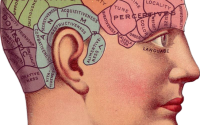Life as a Dog: Effect of massage therapy on pain and quality of life in dogs
Clinical canine massage involves muscle and tissue manipulation techniques to rehabilitate injured soft tissues.
Researchers drom Centre for Animal Welfare, University of Winchester, and Canine Massage Guild reported a study in the Journal Veterinary Record. The cross-sectional study was conducted to determine how dogs respond to canine massage therapy practiced by Canine Massage Guild UK practitioners.
In 2018, case notes from a selected 527 dogs were shared, with permission from owners, by a self-selected sample of 65 practitioners.
Combining all case notes, the study reported significant reductions in reported pain severity scores for all pain indicators over successive treatments, with each treatment causing further significant reduction in pain severity.
All dogs and diagnostic variables responded similarly. Post-treatment a dog was significantly more likely to have a ‘positive’ quality of life.
The authors concluded that the cross-sectional study indicates canine massage therapy may effectively reduce myofascial and musculoskeletal pain severity reported by owners and practitioners associated with gait, posture, behavioural and performance issues and reduction in daily activities. Although this is not a double-blind trial, and there is no control group, this study suggests massage therapy may be a valid treatment for myofascial and musculoskeletal pain typically derived from muscular injuries, arthritis/other orthopaedic conditions.
Reference
https://pubmed.ncbi.nlm.nih.gov/34120345/

